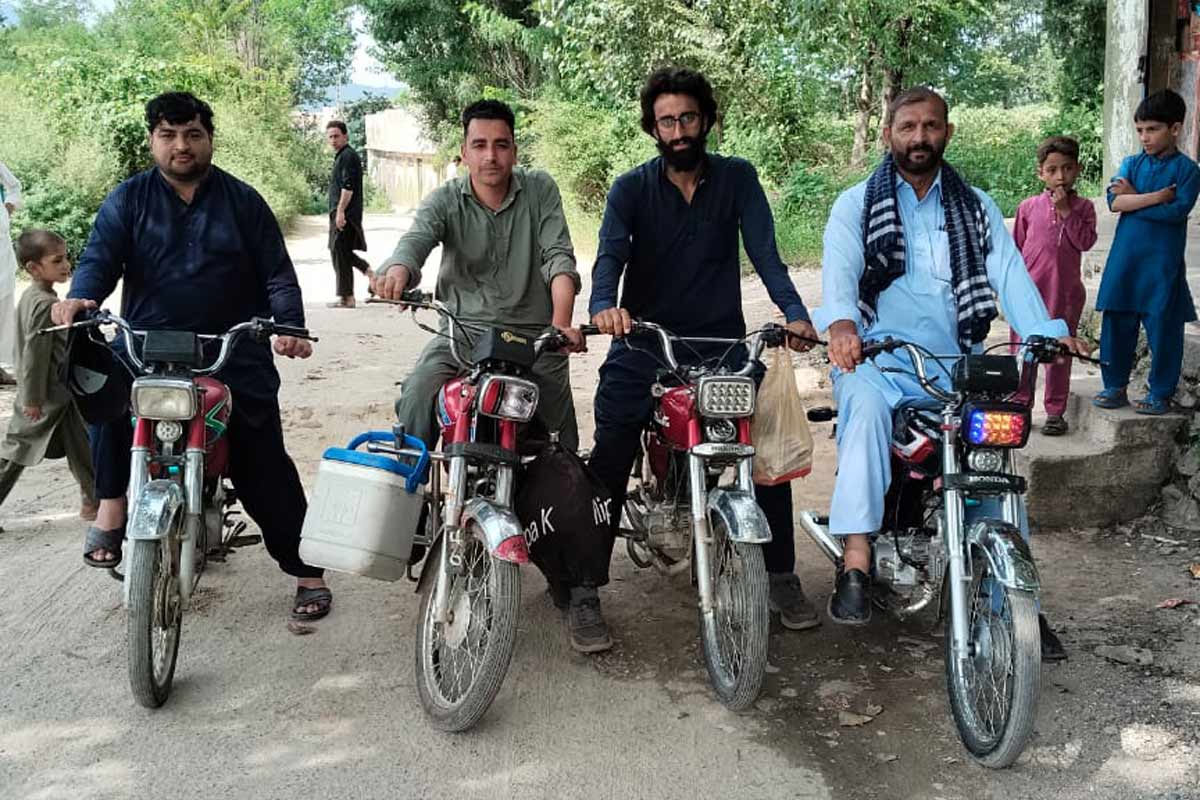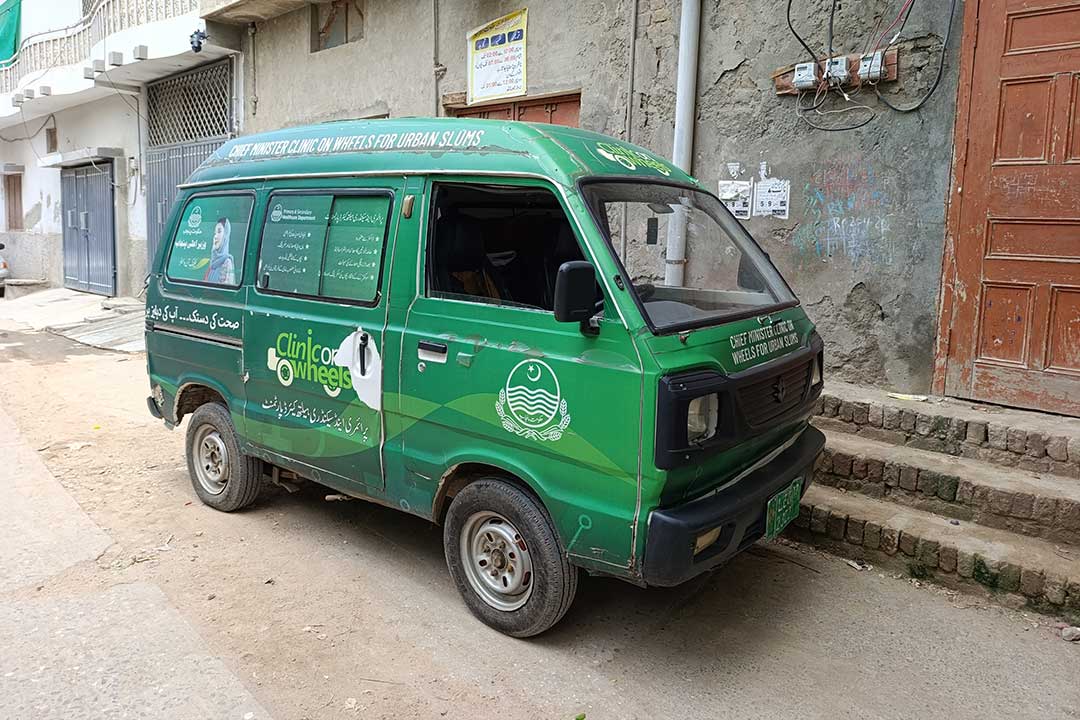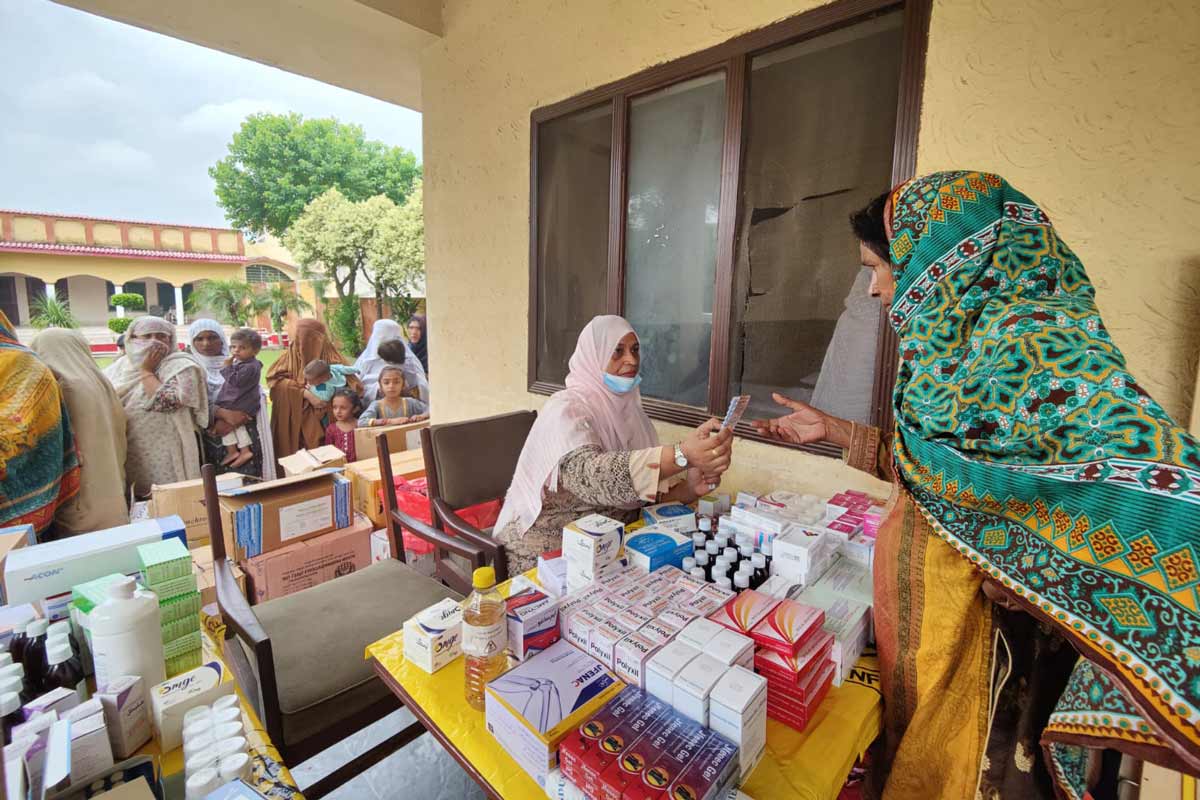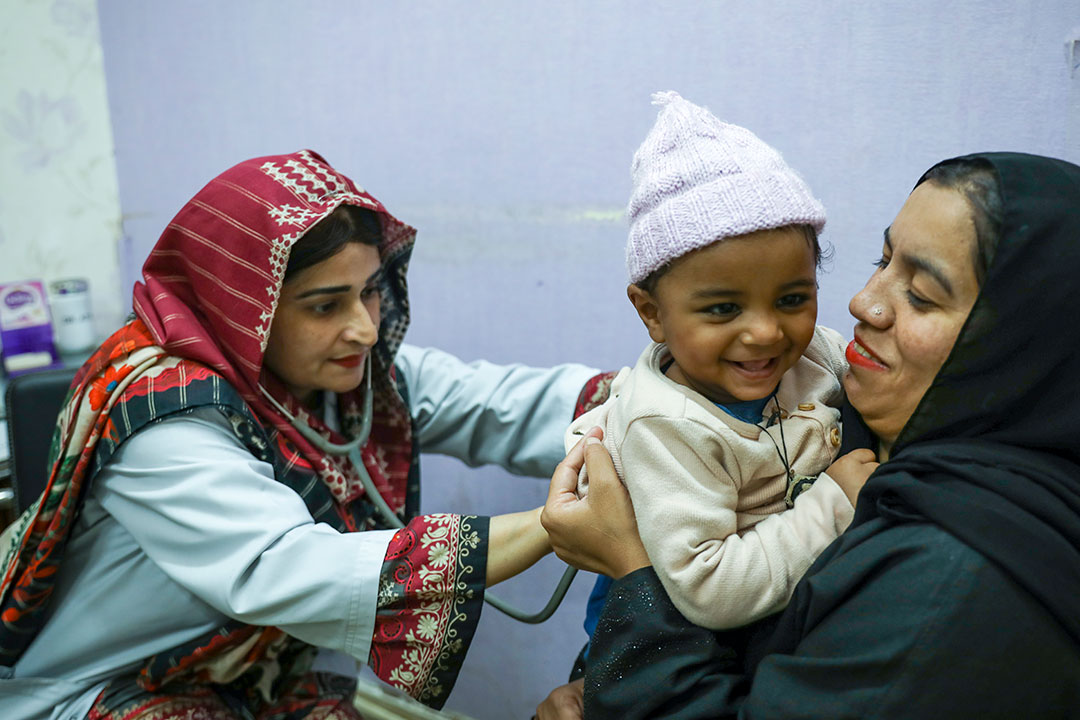“I will never forget”: a father in Pakistan recalls almost losing his baby to measles
Massive vaccination drives against the virus have made headway in Pakistan. But for the unvaccinated, the risk remains steep.
- 12 July 2023
- 5 min read
- by Rahul Basharat Rajput
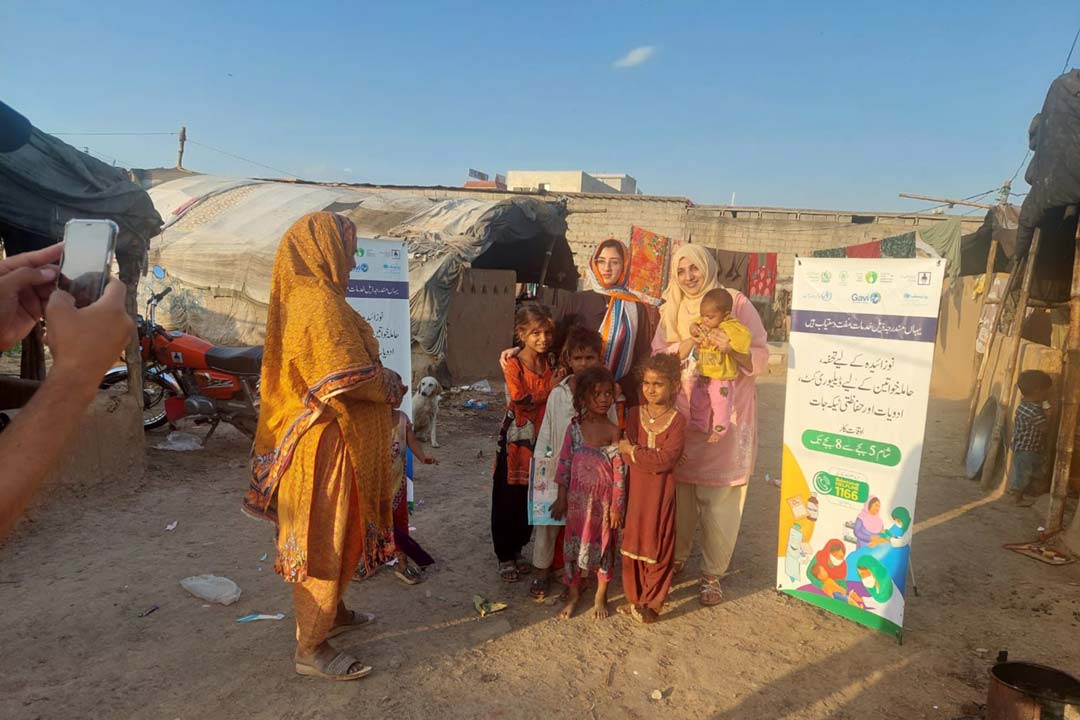
Muhammad Ghafoor never imagined that he would have to watch his ten-month-old son fighting for his life.
The child, Muhammad Rahim, was placed in isolation on the intensive care unit at Benazir Bhutto Hospital's Paediatric Department in Rawalpindi, Pakistan, as doctors made a desperate attempt to save his life.
He had contracted measles first, explained 28-year-old Ghafoor. When that virus had suppressed the child's immune system, pneumonia took hold. His condition grew critical, and the infant struggled on the brink of death for 14 days.
Looking back, Ghafoor, a poor labourer, says that the underlying cause for the child’s life-threatening illness was his own lack of knowledge: he had considered vaccination an unimportant task.
Looking back, Ghafoor, a poor labourer, says that the underlying cause for the child's life-threatening illness was his own lack of knowledge: he had considered vaccination an unimportant task.
When Mohammad Rahim was born, Ghafoor's wife Safina Jan took him for the first few of the recommended jabs at a government hospital. But her commitment lapsed, in time, and both husband and wife neglected the measles vaccine, scheduled for babies of nine months.
The result was that Rahim remained defenceless against the highly contagious measles virus when an outbreak swept through. Still, Muhammad Ghafoor and his Safina Jan count themselves as fortunate that their son survived. Not all parents in the Rawalpindi region of the Punjab province in Pakistan were lucky.
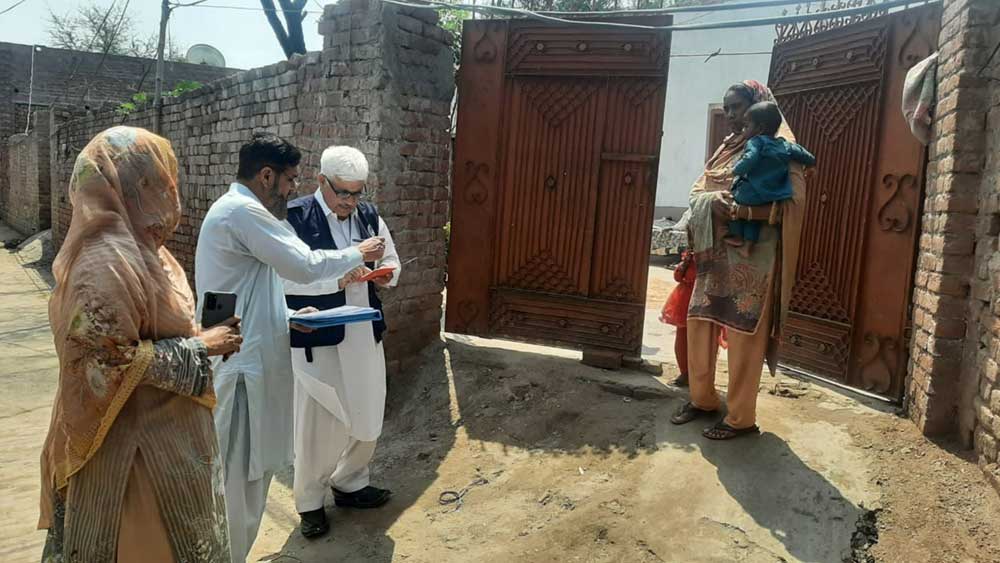
Credit: Expanded Program of Immunisation, Punjab.
Eleven children here lost their lives to measles in the months between January and May, according to regional health officials, while hundreds were found to have been infected.
Doctors and health officials consider that the main reason behind these preventable deaths was the reluctance of people to get vaccinated, particularly coupled with the disruption of routine vaccination during the COVID-19 epidemic. All over the world, measles has spiked as COVID-era vaccination coverage drop-offs have left gaps in the collective immunity wall.
Still, officials running Pakistan's immunisation programme say the country has managed to significantly reduce the annual number of measles cases. Last year, 7,622 measles cases were reported Pakistan-wide, a large drop from 2021's case-count of 17,000. In 2020, that figure stood at around 8,500.
That's a consequence, they say, of successive large-scale anti-measles campaigns: In 2021, Pakistan conducted a colossal measles-rubella drive, immunising around 90 million children aged nine months to 15 years with support from Gavi and other partners. During the that campaign, 15 million children in the country's most populous province, Punjab, were immunised. Of them, 2.3 million children were in the administrative region of Rawalpindi.
Pakistan also ran a special campaign in November 2022 to control the risk of measles outbreaks in the crisis conditions that followed unprecedented flooding. The campaigns reached at least 1.8 million children.
Have you read?
But measles is a notoriously adept at exploiting even small immunity gaps. Director of Punjab's Expanded Program on Immunization Dr Mukhtar Ahmed Awan told VaccinesWork that of the 11 children who recently died of measles in Rawalpindi, seven were totally unimmunised against measles, and the remainder had received just a single dose of the two-dose regimen.
"This is the main problem – that families with low-income backgrounds and education do not take vaccination important because of their misconceptions," he said.
Dr Mukhtar Ahmed Awan told VaccinesWork that of the 11 children who recently died of measles in Rawalpindi, seven were totally unimmunised against measles, and the remainder had received just a single dose of the two-dose regimen.
Dr Mukhtar said a single dose of measles vaccine administered at nine months offers 80 percent protective immunity. Some children, especially those with lower nutritional statuses, are more vulnerable than others.
He said another significant challenge is lack of resources in public hospitals. Because of large numbers of patients, a measles infected child may sometimes be admitted in the common ward, instead of in the isolation ward, resulting in the spread of the disease to other children.
"Mobility of the population from Afghanistan is also a contributing factor in rise of measles cases," he added.
He also explained that April and May are peak season, when around 20 percent more cases are reported than in the remaining months of the year.
"Parents' awareness to administer two doses of measles to their children is very important to reduce the number of cases," he said.
A paediatrician at the Pakistan Institute of Medical Sciences, Dr Sobia Tabassum, told VaccinesWork that measles is a contagious disease, and that other opportunistic sicknesses – very often including pneumonia – can complicate measles cases, sometimes leading to death.
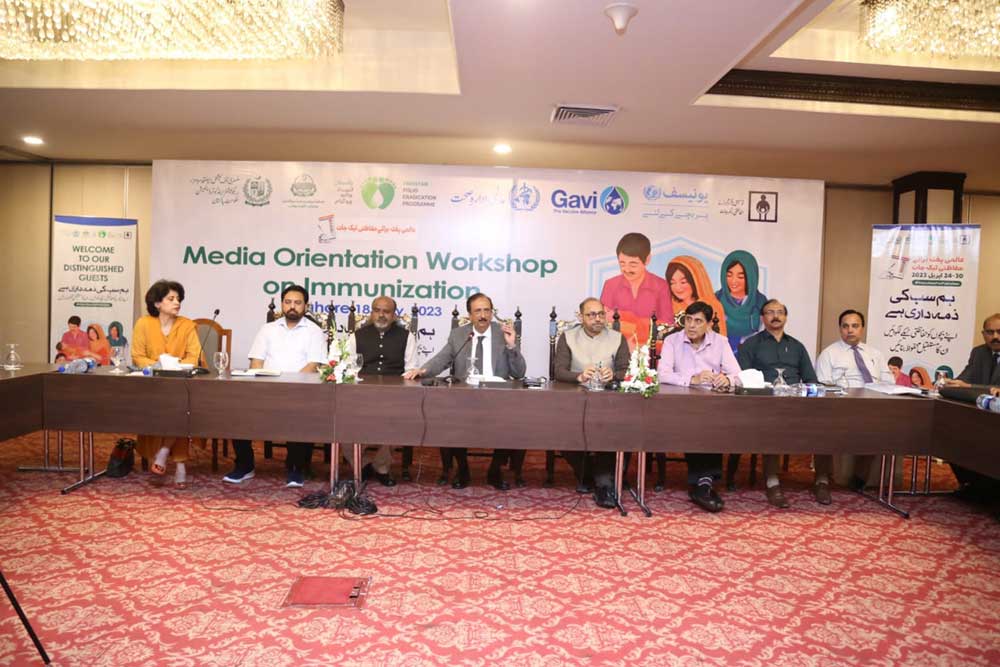
Credit: Expanded Program of Immunisation, Punjab.
She said the majority of measles cases ending in hospitals are those who didn't get even a single dose of anti-measles vaccines.
She also said during COVID-19, routine immunisation programmes were halted, which created the immunity gap and resulted in a rise in cases. Later, floods in dozens of districts in the central regions of the country – which forced displaced people to congregate in camps and elsewhere – also added to the risk of rapid viral spread.
"But still reaching a vast population which is scattered and comes from less educated backgrounds is a challenge, and needs strong community engagement to convince them to vaccinate their children," said Dr Tabassum.
“I will never forget that nerve-breaking time, and also never ignore vaccinating my child.”
– Muhammad Ghafoor, father of ten-month-old measles survivor
Provincial Minister for Primary and Secondary Health, Dr Jamal Nasir, who was speaking at a media workshop on the Extended Program of Immunization (EPI), said that Punjab province has the highest routine immunisation rate in the country with more than 90 percent coverage, adding that the government of Punjab is committed to providing better healthcare facilities to all the people of the province without discrimination.
He said that though the government lacks funds, with the help of donor agencies and partners, like the World Health Organization, UNICEF and Gavi, the EPI is determined to protect children from all 12 scheduled vaccine-preventable diseases.
Meanwhile, little Muhammad Rahim is home – and vaccinated. "I will never forget that nerve-breaking time, and also never ignore vaccinating my child," said his father, Ghafoor.
